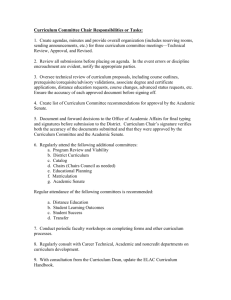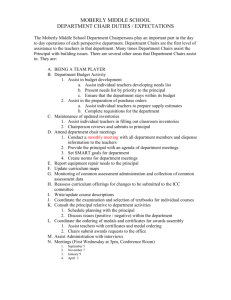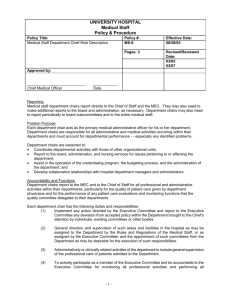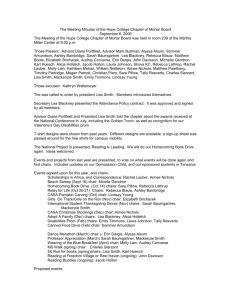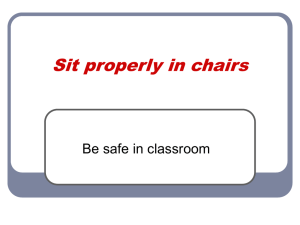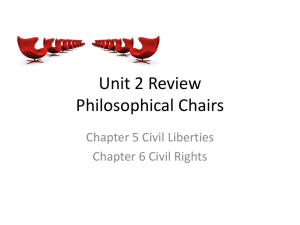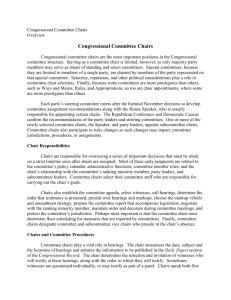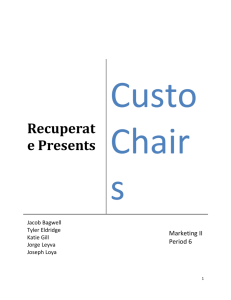Kennon Cont
advertisement
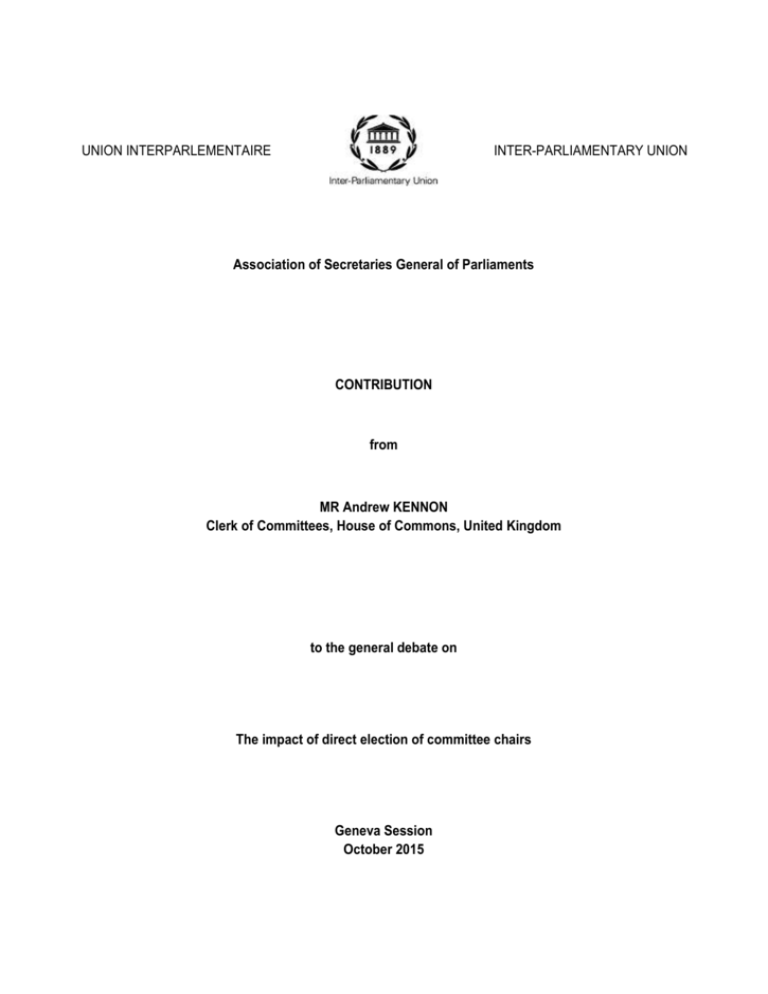
UNION INTERPARLEMENTAIRE INTER-PARLIAMENTARY UNION Association of Secretaries General of Parliaments CONTRIBUTION from MR Andrew KENNON Clerk of Committees, House of Commons, United Kingdom to the general debate on The impact of direct election of committee chairs Geneva Session October 2015 Note on the General debate: In 2010 the UK House of Commons moved from a system in which committee chairs were elected from within each committee to one in which they were elected by the whole House before other members of a committee were appointed. Prior to 2010, the chairs of most select committees were elected by the committee itself from among its own Members. Often those appointed by the House to a committee included someone who was expected to be elected as chair. There was always an understanding between the party whips about which party would have the chair of each committee and this often translated into an individual being identified in advance. But there were often examples of several candidates competing and occasionally the expected candidate was unsuccessful. In general it could be said that chairs were “first among equals” in the Committee, known but not prominent in the House and, to a certain extent, still dependent on the goodwill of other committee members. The system changed in 2010 – and the consequences are still being assessed. The aim of this debate is to see what we can learn from other Parliaments about how the new arrangements in the House of Commons affect: the relationship between chairs of committees and the plenary the duty of committee staff to work for the whole committee or principally for the chair. Now almost all chairs are elected by the whole House. An agreement between the parties still determines which party will have the chair of each committee. Then only candidates form that party may stand for the post but MPs on all sides of the House can vote. Thus candidates must canvass support not only from their own side but also from their political opponents. In 2015, the parties agreed that 14 chairs would be held by the Government, 11 by the Official Opposition and two by the third largest part. 15 of the 27 chairmanships were contested and in four of them there were as many as five candidates. Of the 12 elected unopposed, eight had been chair of the same committee in the previous Parliament. of the 15 contested, one chair was re-elected and one former chair defeated. Once the chairs are elected, then other members of committees are appointed, following elections within parties. This means elected chairs start planning the committee work programme with the committee staff before any other members have been appointed. The general view is that this direct election of chairs has raised their profile in the House and in the media. They probably have a greater say – or other committee members are consulted less – about the committee’s agenda. In some cases there is a risk that other members of the committee feel that the committee staff work mainly for the chair rather than for the whole committee. These are then the three issues I raise for debate: A. Does it make a difference to how committees work if the chair is chosen by the committee itself, or by some other means? B. Does it affect how committee staff work – mainly for the chair or for the whole committee? C. In cases where chairs are elected by the whole House, how much competition is there for such posts?
